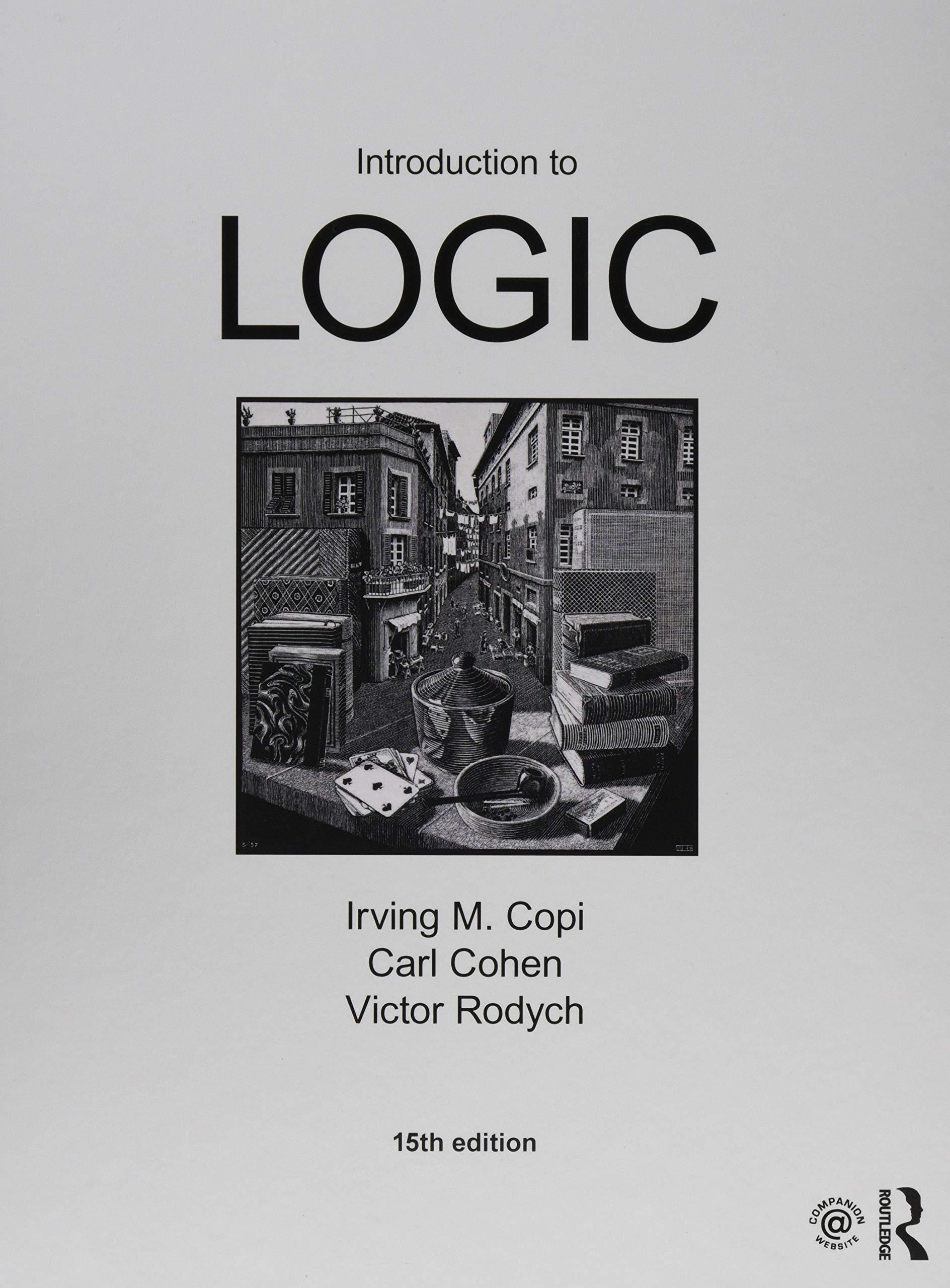Some of the following passages contain explanations, some contain arguments, and some may be interpreted as either
Question:
Some of the following passages contain explanations, some contain arguments, and some may be interpreted as either an argumaent or an explanation. What is your judgment about the chief function of each passage? What would have to be the case for the passage in question to be an argument? To be an explanation? Where you find an argument, identify its premises and conclusion. Where you find an explanation, indicate what is being explained and what the explanation is.
Man did not invent the circle or the square or mathematics or the laws of physics. He discovered them. They are immutable and eternal laws that could only have been created by a supreme mind: God. And since we have the ability to make such discoveries, man’s mind must possess an innate particle of the mind of God. To believe in God is not “beyond reason.”
Step by Step Answer:

Introduction To Logic
ISBN: 9781138500860
15th Edition
Authors: Irving M. Copi, Carl Cohen, Victor Rodych





